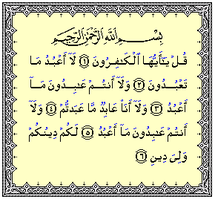Template:Pictorial-Islam-options: Difference between revisions
| [checked revision] | [checked revision] |
mNo edit summary |
mNo edit summary |
||
| Line 1: | Line 1: | ||
<noinclude>Also see: [[Template:Pictorial-Islam]]</noinclude><!-- HELP NOTES: Each option tag handles one random story --><choose> | <noinclude>Also see: [[Template:Pictorial-Islam]]</noinclude><!-- HELP NOTES: Each option tag handles one random story --><choose> | ||
<option weight="1">{{Pictorial-Islam|1=Moderate Alcohol Consumption and its Health Benefits|2=[[File:Wine-poured-into-glass.jpg|300px|link=Moderate Alcohol Consumption and its Health Benefits]]|3=Alcohol and other intoxicants are strictly prohibited in Islam. This aspect of Islam may seem rational, considering the abuse of alcohol can lead to social and health-related problems. However, when used in moderation, research suggests that there are numerous benefits in the consumption of alcohol, and an all-knowing deity would have been aware of this. The Jews and Christians are allowed to consume alcohol. The pagan Arabs before and shortly after their conversion to Islam also consumed alcohol. So why did Allah prohibit something that may be beneficial and which was an accepted norm among the religions before Islam? Furthermore, if the potential health risk of alcohol was the cause of the prohibition, why not also warn against the dangers of drinking milk? ([[Moderate Alcohol Consumption and its Health Benefits|''read more'']])}}</option> | |||
Revision as of 23:08, 22 January 2014
Also see: Template:Pictorial-Islam
|
